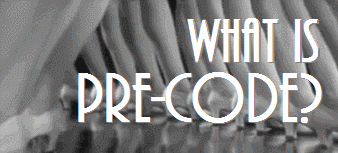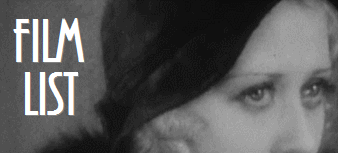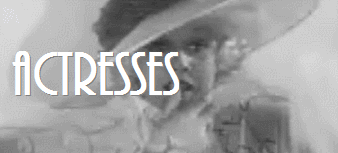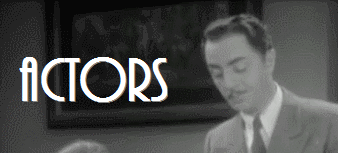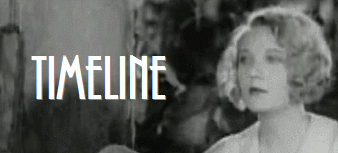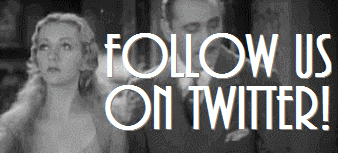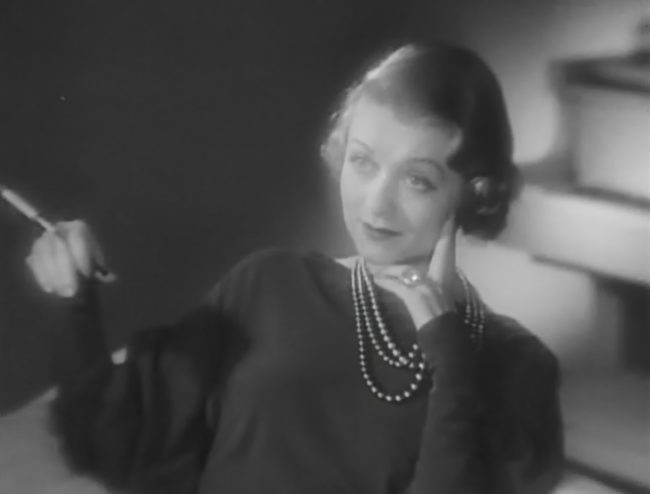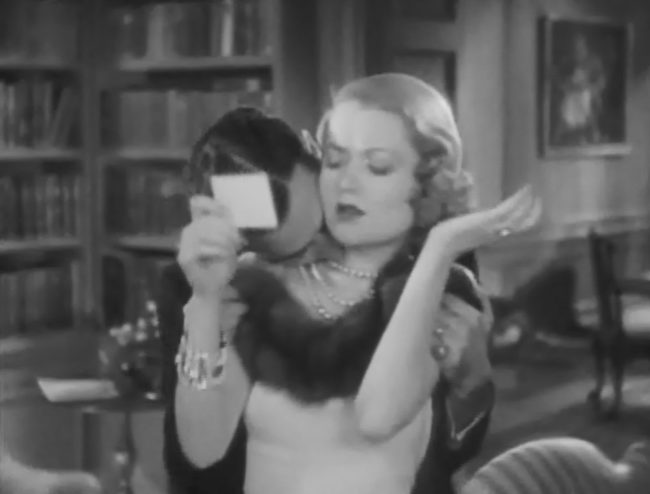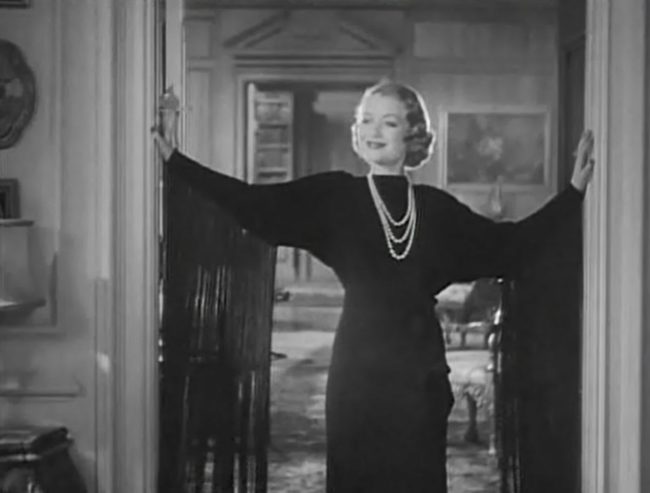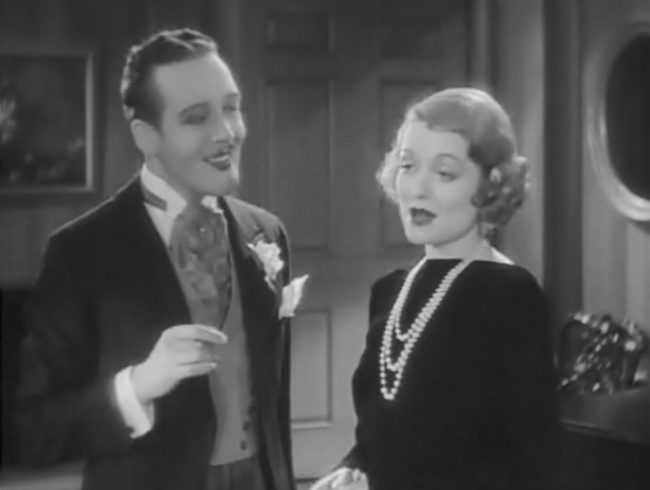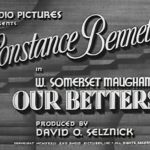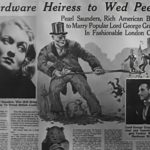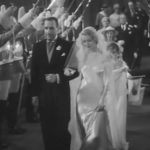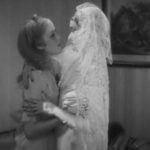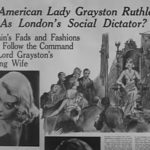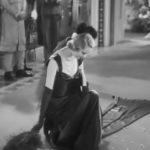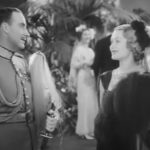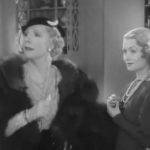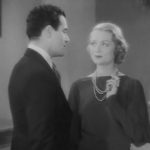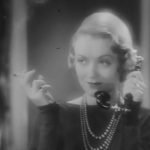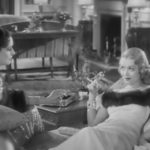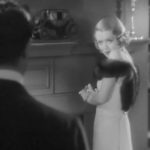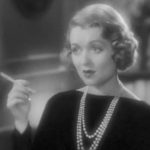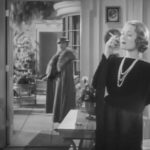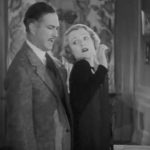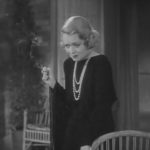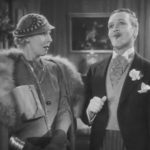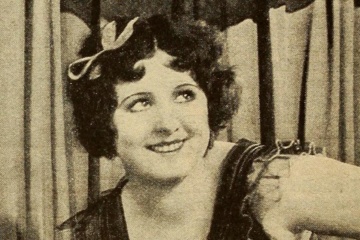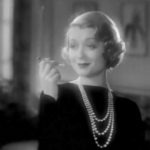 |
 |
 |
| Pearl Constance Bennett |
Duchess Violet Kimble-Cooper |
Pepi Gilbert Roland |
 |
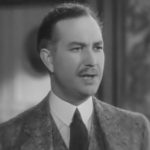 |
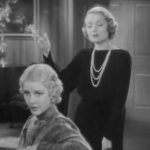 |
| Thornton Grant Mitchell |
Arthur Minor Watson |
Bessie Anita Louise |
| Released by RKO | Directed by George Cukor Run time: 85 minutes |
||
Proof That It’s a Pre-Code Film
- “Are you making love to me?”
“That’s nothing new, is it?”
- “I didn’t believe such language could emanate from a woman’s throat!”
- This film’s final line is infamous.
Our Betters: Mud Wrestling in High Society
“It’s wonderful how you’ve made your way, Pearl.”
“Shall I tell you how I’ve done it? Through force of character, wit, unscrupulousness, and push.”
“You’re very frank.”
“It’s always been my pose.”
Our Betters throws you for a loop. Many of Constance Bennett’s roles in the pre-Code era were tales of lascivious women and the sins they pay for. This one starts with doe-eyed heiress Bennett heading to the altar with the man of her dreams, only to overhear him on their wedding night as he tells the woman he’s really in love with that he’ll now have enough money to keep them together. Constance gets a title and an entryway into British society– spurned, she decides to make the most of it.
We pick up the story a few years later, and Bennett’s Pearl has flourished as one of the most daring countesses on the court. She wears black to greet the queen and causes a scandal. It’s neither her first nor last, but it shows how gleefully she enjoys flaunting her social position, with a calculated (and egotistical) edge.
Her circle of friends is intimate, emphasis on the variety of the meanings of the word ‘intimate’. Mostly a variety of American ex-pats who’ve decided to retake the motherland, they’re all a bit catty, often sticking around Pearl for either gossip or eyefuls. Bennett’s group of old and new rich includes people like the Duchess (Kimble-Cooper), who spoils Pepi (Roland), a young Latin lover who shows interest in only her money– but she loves his disinterest.
Pearl must also play vulnerable to Arthur (Watson), a sugar daddy who buys every innocent act that Bennett throws his way. She’s more cagey then she lets on, and spends most of the time when not arguing with people about their flighty affairs keeping herself and Pepi together on the side.
The thrust of the main plot is that Bennett is showing her younger sister, Bessie (Anita Louise), the ways of high society. She’s pushing her sister into the same sort of society gig with a handsome husband and a fancy title, though the man Pearl’s hunted up for Bessie isn’t as big of a scumbag as Bennett’s husband.
Under the direction of George Cukor, the film carefully lingers on Bennett’s exquisite looks and her ability to undress the truth with glee. She’s a minx, who has cautiously guarded herself. Pearl’s affair with Pepi is the only time after her wedding that she shows anything but a smirking command of the situation. It’s hard not to coo as Bennett, in her sleek robes, working a cigarette with wicked glee, breathlessly teases:
“Pepi, do you know the most charming word in the English language? … ‘Perhaps’.”
The witty script showcases the idle rich as bickering children. Nothing especially new under the sun, but the film plays it with a delicate wit. Their pompousness is complete. The film goes to long lengths to stress just how petty wealth allows people to be, while also stressing how their childish impulses force them to be utterly codependent on one another at the same time.
Spoilers.
The ending of Our Betters floats in from another universe, and it’s wonderful. After all of the tensions of who-is-sleeping-with-who come to a head, Pearl know she has to make things up to her guests. There’s a popular London house guest, Ernest (Tyrell Davis) that she entices to show up at the party, who we would know nowadays as a flamboyant gay stereotype. He wears lipstick and has a killer step, and he makes the most cunning remarks– and he’s a treat. Cukor was no doubt enjoying goosing conservative America with this, even giving Ernest the full wink of a closing line as Pearl and the Countess make-up:
“Ah! What an exquisite spectacle! Two ladies of title, kissing one another!”
End spoilers.
Our Betters is a witty, classy little number. It’s saucy blend of pre-marital sex and it’s forthright assertion that homosexuality can be extremely fashionable were daring for the time. While it seems a little old hat now, it’s still an extremely elegant relic that’s easy to sink back into.
Gallery
Click to enlarge. All of my images are taken by me– please feel free to reuse with credit!
Trivia & Links
- Based on a 1923 stage play by W. Somerset Maugham. This film’s director, George Cukor, was the stage manager for the original production; he and Maugham became friends after that, according to TCMDB.
- Erich at Acidemic is giddy over this one, and nails the beauty of the film’s offbeat ending.
- At Mike Grost, he talks about how the film fits in with other Cukor films and what themes it shares.
The lead character played by Constance Bennett has many characteristics of Cukor protagonists. Like many of Cukor’s women, she has transformed herself and achieved a new position in society. But she also has attributes that later would be found more often in Cukor’s male leads. She is the character most conscious of the structure of society around her, most knowledgeable about its faults, failings and hypocrisies. She is able to maintain a sustained critique of its contradictions throughout the film. This makes her similar to Professor Higgins in My Fair Lady, and the Jack Lemmon role in It Should Happen To You. Also like these male leads, she is given to elaborate gestures and body postures, dramatizing and making clear her feelings at all times.
Awards, Accolades & Availability
- This film is an obscure one– I caught it on TCM, where it plays occasionally.
More Pre-Code to Explore
